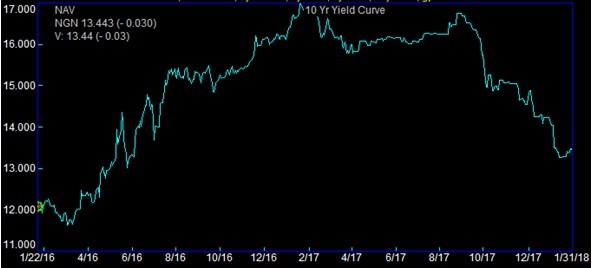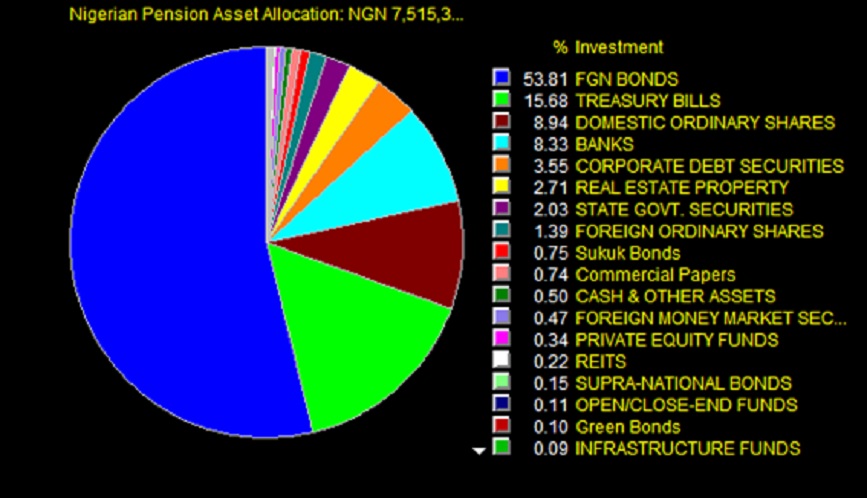By Quantitative Financial Analytics
Following Nigeria’s endorsement of the Paris Agreement on Climate Change on September 21, 2016, the federal government of Nigeria issued its first Green Bond in the amount of N10.69 billion.
Nigerian pension funds saw that as an opportunity to extend and have extended their exposure to bonds by investing in the Green Bond.
Analysis of the recently released data by PenCom reveals that pension funds got exposed to Green Bond to the tune of N7 billion invested mostly by the RSA category of pension funds.
It will be recalled that pension funds diversified into Sukuk Bond when that was first issued earlier in 2017.

Nigerian pension funds are still over weight in fixed income securities as about 74 percent of their asset is held in bonds, T-bills and other fixed income securities.
Pension funds are therefore becoming a big force in the Nigerian bond market. Though such over allocation to fixed income securities helps the pension funds to manage the volatility inherent in equity portfolios, it could stymy the funds from maximizing their returns.
Such concern is even more obvious now that yields are falling across all tenors, making bonds unattractive.
The 10- year yield, for example, lost 1.87 basis points to end 2017 at 14.24 percent against 16.11 percent in 2016 and it has so far lost 0.8 basis points in 2018 to end January at 13.44 percent (the lowest since June 2016).
It may be time for pension fund managers to look for avenues to generate additional alpha for their funds while staying within limits of regulatory requirements and the demands of their customers for liquidity and safety.























